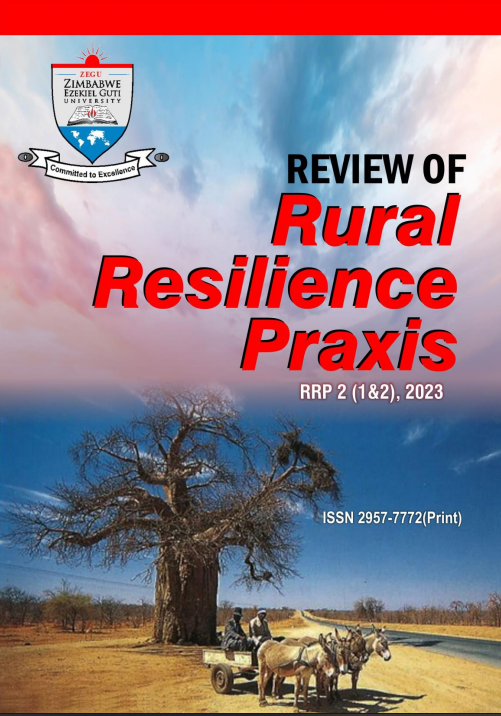Project Resilience: relevant or a far-fetched concept in the context of Zimbabwe's Rural Projects by NGOs?
DOI:
https://doi.org/10.71458/ky72fp63Keywords:
adaptive capacity, vulnerability, poverty, sustainability, livelihoods, monitoring and evaluation, eco-cycleAbstract
Project resilience ensures the continued existence and relevance ofprojects. It is a product of a variety of factors, thus a complexphenomenon that requires a systems approach to analysis. Little researchexists on project resilience. For on-governmental organisations (NGOs) toremain relevant and essential, there is need for analysis of their projectsusing project resilience concepts. This article discusses the factors thataffect project resilience in rural projects involving NGOs using a systemsapproach. It then suggests the Panarchy Model be used to do a projectresilience analysis using three eco-cycles. After carrying out a narrativeliterature review. 35 articles were included in this study. A three-layeredeco-cycle in the model is suggested with individual resilience at thebottom layer, community resilience in the middle layer and projectresilience at the topmost layer. These layers have various players thatinteract in a cyclic manner. It was found that collaboration, knowledgegeneration, understanding the context and monitoring and evaluation areamong key issues that ensure project resilience. It is recommended thaNGOs partake in bottom-up collaboration with communities to informtheir projects. Researchers are recommended to also do empirical studiesto test the three-layered eco-cycle suggested for its relevance in practice.




